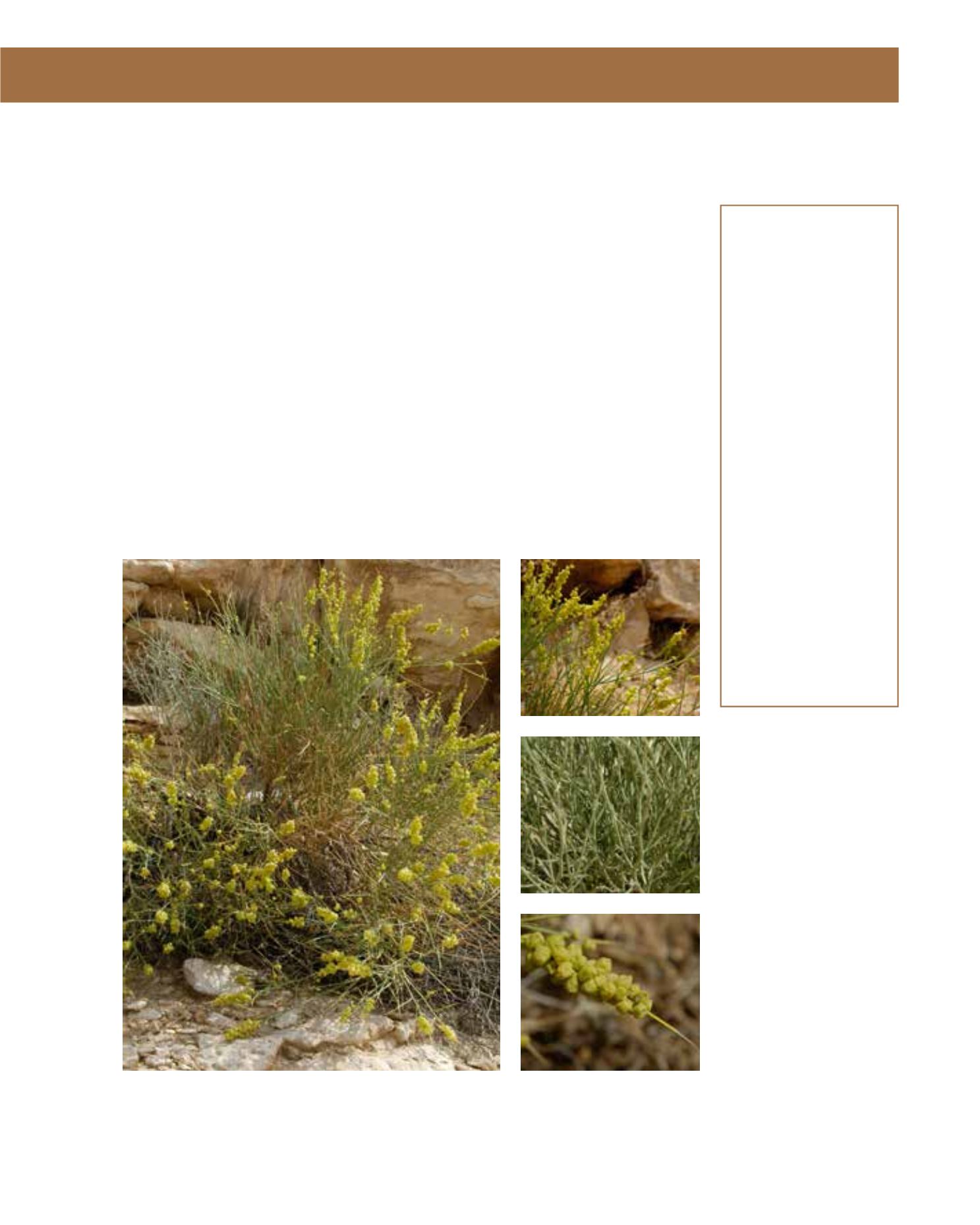

GENERAL
Origin
:
sub-tropical
Vigour
:
fast growing
Humidity
:
very arid, semi-
arid
Propagation :
direct sowing,
sowing and
pricking out
Maintenance :
low
CONDITIONS
Urban climate :
resistant
Dessication :
resistant
Stagnant water :
vulnerable
Irrigation
:
none
Salinity/ppm :
high (3500 ppm)
Hardiness
:
-6°C
SHAPE
Type
:
shrub
Height
:
3 m
Spread
:
3 m
Foliage
:
semi-evergreen
FLOWER
Colour
:
yellow
Size
:
0.4 cm
Period
:
March - May
FRUIT
Type of fruit :
berry
Fruit size
:
3 cm
Ochradenus is an indigenous plant from the Arabian peninsula. The Arabic names are kardhi or
alandra. The plant can be found growing wild all over Arriyadh and the Arriyadh region. The
shrub can grow to a height of 3 metres. The stems are fresh green; the leaves are small and incons-
picuous. However, the attractive blooms that appear in spring are in 4 cm long panicles with 4
mm yellow single flowers. The fruits are in 3 mm white berries in panicles. The plant is very well
adapted to desert conditions, with its tap root and small foliage. It likes silty, rocky soils. Kardhi
can withstand high salinity. Propagation is by direct sowing or sowing and pricking. Mainte-
nance is very low; pruning will optimise growth and flowering. As a native plant, Ochradenus
can be used in open country, as a bank and slope stabiliser, coloniser, and for environmental
consolidation. Its use is advisable for rehabilitation of plant cover, because of its windbreaking
properties. This shrub is also suitable as a hedge and groundcover, and is therefore a good shelter
for other plants. The plant can be used as fodder for camels. However, Ochradenus should be
considered in urban planting themes as well. In harsh urban conditions, it will provide green
foliage where other plants are unable to grow, and it is also a very useful plant in natural schemes
such as Wadi Hanifah. In former times, it was used as medicinal plant; a decoction was used for
wounds, intestinal parasites and to relieve pain.
214
Ochradenus baccatus,
Resedaceae
Taily Weed,
kardhi, alandra
















